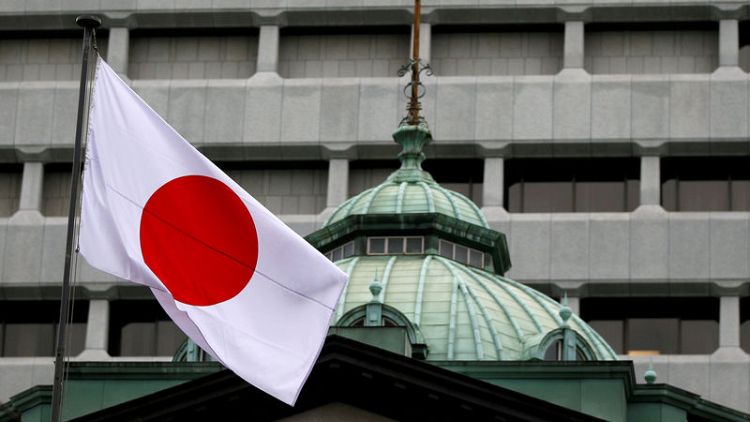By Leika Kihara
TOKYO (Reuters) - The Bank of Japan is expected to keep monetary policy steady on Wednesday and maintain its optimistic view on the economy, even as escalating global trade frictions threaten to chill growth.
The central bank's nine-member board will also likely scrutinise bond market moves since its decision in July to allow yields to move more flexibly around its zero percent target.
At a two-day rate review ending on Wednesday, the BOJ is set to maintain its short-term interest rate target at minus 0.1 percent and that for long-term rates around zero percent.
It is also seen sticking to a pledge, put in place in July, to keep rates very low for an extended period as inflation remains far off its 2 percent goal.
"The BOJ's September monetary policy meeting should be just an extension of the July one and we expect a 'wait and see' stance with no major announcements," said Katsunori Kitakura, lead strategist at Sumitomo Mitsui Trust Group.
"By introducing forward guidance, the BOJ has successfully dispelled any speculation of a rapid exit from its easing programme."
The meeting comes ahead of a ruling party leadership race on Thursday, which Prime Minister Shinzo Abe looks set to win and put him on track to become Japan's longest-serving premier.
While few analysts expect the BOJ to immediately dial back stimulus, politicians have sent signals that they are becoming more amenable to the idea of a future exit from easy policy.
Abe said last week the BOJ's ultra-easy policy should not last forever, signalling his hope of laying the path toward an exit from a radical stimulus programme.
Markets are focusing on how Governor Haruhiko Kuroda could respond to Abe's remarks, as well as clues on whether the BOJ may act again to boost trading activity.
At his post-meeting briefing, Kuroda may also warn that protectionism benefits no country, in the wake of U.S. President Donald Trump's decision to slap new tariffs on China.
Japanese policymakers fret that trade frictions could hurt business morale and discourage firms from ramping up spending.
Still, the BOJ is seen maintaining its assessment the world's third-largest economy will continue a moderate expansion driven by robust global demand.
It may offer a slightly more upbeat view on capital spending than in July, reflecting a slew of recent data showing companies are buying more equipment to deal with labour shortages.
Despite the BOJ's steps in July to make its policy framework more flexible and sustainable, long-term yields have been caught in a narrow band around 0.1 percent, underscoring the difficulty of chasing two goals - sticking to a policy that aims to cap bond yields while attempting to boost trading activity.
(Reporting by Leika Kihara; Editing by Shri Navaratnam)



